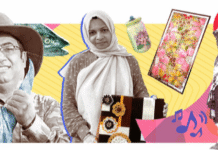11th Parliamentary Election
A case of overkill
Can it still be redeemed?

The Awami League and partners led by Sheikh Hasina won a stunning victory in the 11th parliamentary election on December 30 bagging over 95 percent of the seats. Is it a victory for the people also? If not, can it still be turned into a people’s victory?
An expatriate polling expert assisting in the ruling party’s internal poll about election prospects spoke to this writer a week before the polls, choosing to remain anonymous. It was a nationwide sample survey of constituencies, both urban and rural. The pollster’s prediction was a 60:40 split among the voters in favour of the ruling coalition.
Asked about how the voting split might translate into numbers of parliamentary seats, the prediction was that the ruling alliance would win a comfortable majority to form the government and there would be a sizable opposition presence.
Our conversation turned to media reports and opposition complaints about the police and administration’s harassment of opposition leaders and workers, the spate of arrests and a flood of court cases, and even intimidation of opposition sympathisers during the run-up to the polls.
The statistician, who is also an economist well-acquainted with Bangladesh’s development and politics, wondered why the regime felt the compulsion to resort to questionable steps to tilt the playing field in its favour. Was it a lack of self-confidence and fear of defeat in a fair election or an authoritarian desire to wrest absolute control of politics in the country?
We will never know. As it turned out, the polls were marred by violence, with 18 people on both sides killed. The absence of polling agents of the opposition in polling centres, reportedly intimidated by arrests and even death threats, voters kept waiting in queues, ruling party supporters chasing away the opposition from the vicinity of polling centres, and cases of ballot-stuffing were reported by the media.
The large margins of difference in votes for winners and the next highest number were unprecedented. There is a general belief borne out by past experiences that the two major contending parties had a loyal support base of around one-third of the electorate, and the poll outcome depended on the swing among the undecided one-third.
This pattern did not apply this time. The ruling coalition received 82 percent of the votes and 15 percent went to the Oikyafront. Why? Are we witnessing a shift in the loyalties and mindset of the electorate—perhaps with a quarter of the voters comprising of the youth aged under 28 and almost half of them first-time voters? Again, we will never know, because we don’t know to what degree the voting was a genuine expression of their views.
We will also not know how much public support the Islamist political parties can claim. Some 25 members of the Islamist party Jamaat-e- Islami fought under the opposition coalition Oikyafront insignia of the sheaf of paddy, but withdrew from the election, when they saw the voting trend.
Eleven other Islamist parties or groups fielded 568 candidates in the election. Only one won a seat with others pushed aside by the ruling party’s cavalcade of victory.
Impartial observers agree that the Election Commission before and during the election failed to do what it was duty-bound to do to create a level playing field for all contenders and prevent the excesses of police, officials and the ruling party’s muscle men. Ordinary people, when entrusted a great responsibility, sometimes rise to the occasion. As Shakespeare said, “Some are born great…and some have greatness thrust upon them.” This was clearly not the case with this Election Commission.
It is imperative for the nation to look ahead. With greater self-confidence and an overwhelming majority in parliament, the government can adopt laws, policies and programmes that can serve the country well, not just the self-interest of the parliament members. The new tenure of Sheikh Hasina gives her the opportunity to build strong foundations for both equitably shared prosperity and strengthened institutions and culture of democracy.
The new policymakers may begin by looking at their election manifesto and plan for implementing these in good faith. The past experience in this regard has not been promising. The integrity of the statutory institutions—the civil administration, law-enforcing agencies including the police and RAB, and the judiciary including its genuine separation from administrative control—needs to be upheld. Recent practices in this regard cannot be the model for the future.
A shift in mindset is needed about how the executive branch of the government relates to the Commissions for human rights, freedom of information, anti-corruption and the election body. The servants of the republic cannot be just partisans who serve their political masters; their action and discretion must be guided by a code of conduct to serve the public.
MP Saber Hussain Chowdhury had tabled a draft of a Code of Conduct Act for Parliamentarians in 2010, but it languished for lack of interest in the government and among parliamentarians. Badiul Alam Majumdar of Shujan pleads for a National Charter to strengthen democracy. He advocates steps for making the parliament effective, strengthening statutory institutions, making political parties democratic and transparent, safeguarding human rights, and investing in the youth. He also suggests consideration of constitutional reforms to this end based on recommendations of an expert committee (The Daily Star, August 30, 2018). Is it too much to expect that these ideas would be taken seriously?
Investing in the youth was a common item in the pledges of the major parties including development of education and skills and creation of employment opportunities for at least a crore young people in the next five years. To live up to the promise, apart from re-examining systematically the policies and strategies, the partisan and political expedience-based governance decisions and placement in key positions of responsibility have to be abandoned.
Finally, however strong and justified the grievances of the opposition coalition are, they also need to be self-critical. The political programme and activities of BNP have been confined to the election and replacing the regime rather than a continuous political programme that addressed the concerns of ordinary citizens. Short-term electoral calculation appears to have prevented their severance of ties with Jamaat.
Sheikh Hasina’s legacy need not be that she was the prime minister for four terms. For the daughter of Bangabandhu, it should be how strongly she would lay the building blocks of a prosperous, inclusive and democratic Bangladesh.
Dr Manzoor Ahmed is Professor Emeritus at BRAC University.
Source: The Daily Star.









